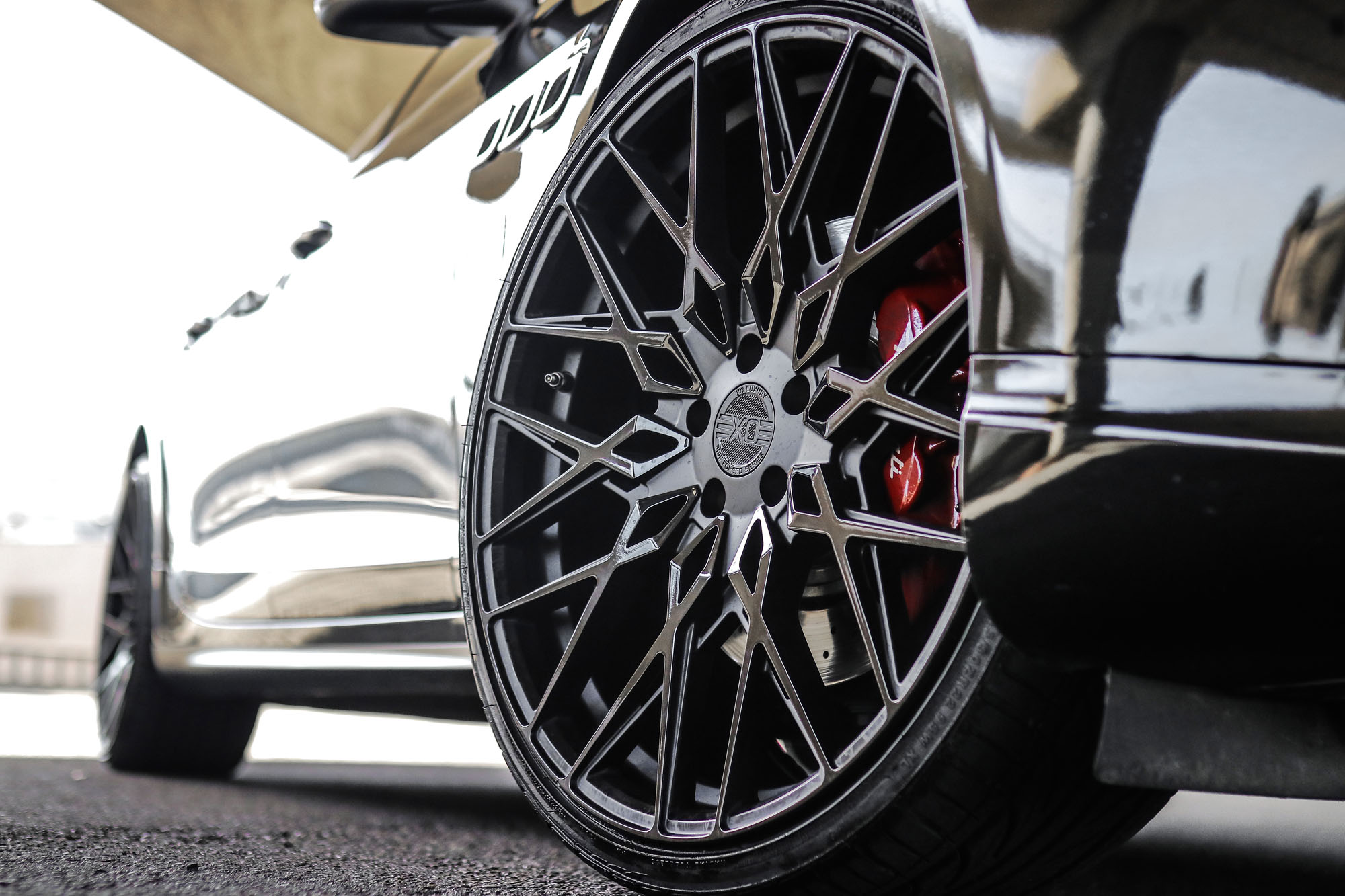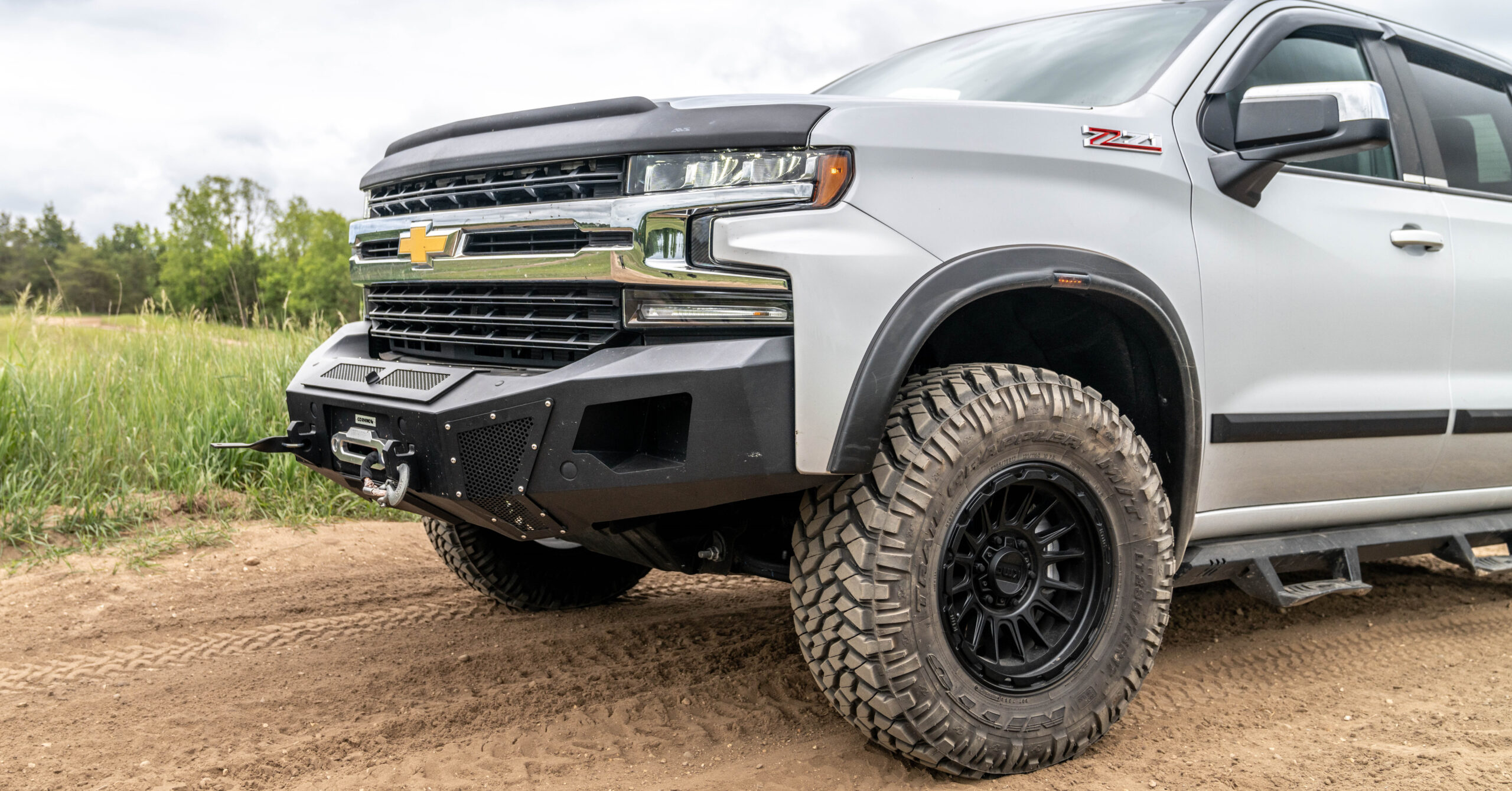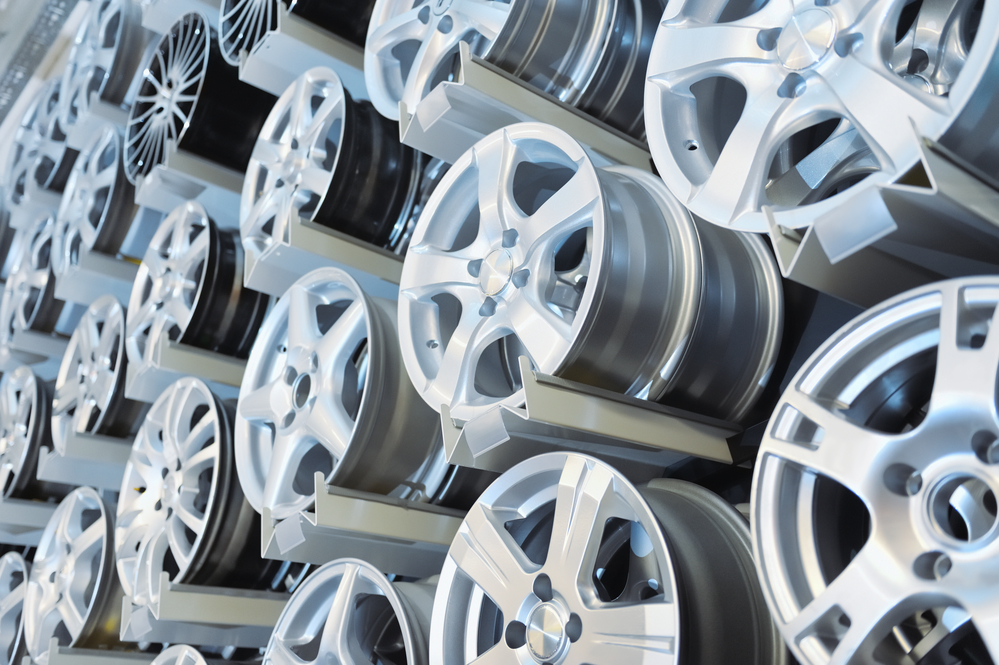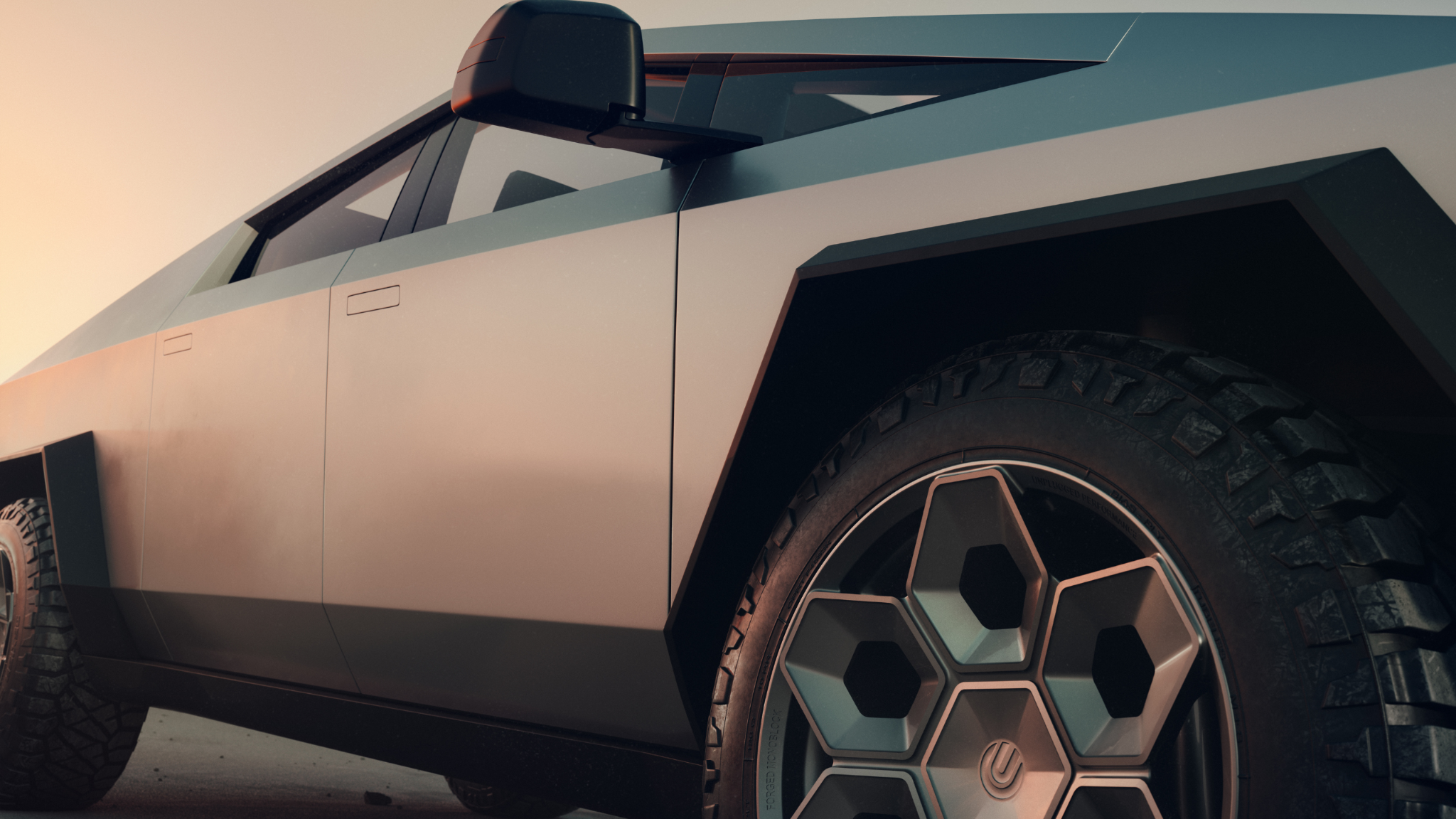For many decades cars were running on the steel wheels. Certainly, many advantages were attained during their prevalence. And even now steel wheels are widely used for different types of activities, ranging from car racing to cargo transportation. Among the main benefits of steel wheels are their affordability for the owner and the easy process of manufacturing for factories.
But as vehicles get better both in functionality and design, different materials had to be used in order to correspond to modern standards. This is where Alloy Wheels were introduced as a solution, both for manufacturers that pursued enhancement and car owners who craved to be in style.
A little Alloy Wheels history
Their first appearance in the vehicle industry took place in 1924 when Italian automobile manufacturer Ettore Bugatti suggested using cast alloy wheels with aluminum to decrease the weight.
In 1950 some other popular companies, like Cadillac, Jaguar, and Porsche, followed the example and used an exclusive mix of steel and aluminum for their wheels. Back then, these wheels served as a signature, a trademark for car manufacturers. It was a stylish design that only a few could afford.
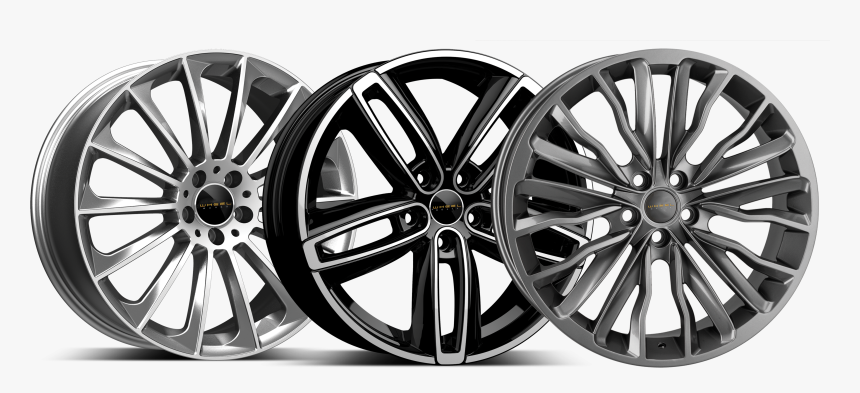
But anyway, Alloy Wheels didn’t get general recognition until the 1980s. That is when the market started to promote alloy wheels as an enhancement for the vehicle’s appearance. And today alloy wheels are installed in most modern cars. The price for them is now acceptable for customers. And some of the drivers don’t even know that they ride on alloy wheels until they change tires or wheels.
Why is Alloy Better than Steel?
Of course, it is always up to a driver to decide, which wheels are best suitable for their vehicle. You should always take into account your car’s compatibility and requirements. But here are a few things in which Alloy Wheels are better than Steel.
- They look better. Steel wheels always look boring and rough, that is why most of the time they are covered with hubcaps. Alloy wheels, on the contrary, do not require anything to cover them. They are polished and finished to look stylish from the start. They also have different designs and patterns anyone can choose when purchasing them.

- They dissipate heat from the brakes faster. Due to this, brakes get much less stress and have increased performance and lifetime.
- They weigh less. It reduces the amount of stress on the suspension system, reducing the risk of breakages. It also makes the overall driving experience more comfortable.
- They reduce fuel consumption. Alloy wheels weigh less than steel wheels, which leads to a reduced amount of required energy to drive. So the vehicle would spend less fuel while gathering up speed.
- They are protected against rust. Although alloy wheels require care too, they are less likely to be vulnerable to rust. Other corrosions like dirt and brake dust can be cleaned using special products for wheel maintenance.
What Do I Need to Know Before Choosing Alloy Wheels?
Purchasing new wheels can seem like a simple task, but it is actually much more complicated than choosing shoes for your feet. If you don’t want to consult your car dealership or go to a car service to get help with choosing wheels, there are some things you have to learn and understand before taking the matter into your own hands.
Measure the offset

In simple words, wheel offset is the distance between a wheel stud and the center of the wheel itself.
If the center of the wheel is too close to the stud, it is called a positive offset. Installing wheels with a positive offset would look like your wheels are spread wide apart as if they are bulging to the sides. It doesn’t have any noticeable negative effect on other parts of your vehicle, and some drivers even choose it to make their cars look different.
But if the center of the wheel is too far from the stud, it may cause unnecessary friction between the wheel and other parts, like the suspension system or inner fender.
To correct offset with unsuitable wheels, spacer plates can be used sometimes.
Other measurements may be required too, like width and diameter.
Purchase hub-centric rings
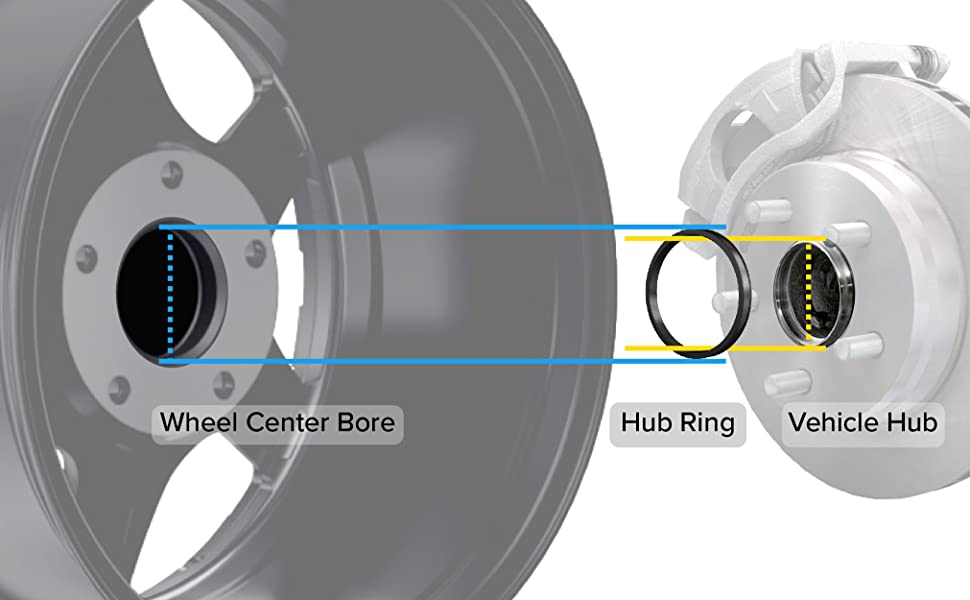
This little thing is necessary for all new sets of rims. It will prevent unnatural vibrations and help the wheels to work smoothly.
Before buying them you have to understand the size. One side of the ring has to match the exact size of your vehicle’s wheel hub, it would be installed facing the stud. And the outer side of the hub-centric ring has to match the center bore of the wheel you are planning to install.
A regular price for a set of four hub-centric rings is less than twenty dollars.
Choose a correct bolt pattern for the wheels
This may sound obvious, but you have to match the holes in your wheel’s stud with patterns in the wheels you plan to buy. Some wheels have different patterns and sizes, so they may not even fit. Although, if you really like some set of tires that don’t match your hub pattern, there are adapters available on the market, so keep that in mind.
Change tires if you want to choose wheels of another size
The size of your tires has to be determined by professionals when you decide to change the size of your wheels. This applies both to increasing and decreasing the wheels. Using old tires on new wheels, if they don’t correspond to each other’s size, will disturb the correct work of the speedometer and odometer.
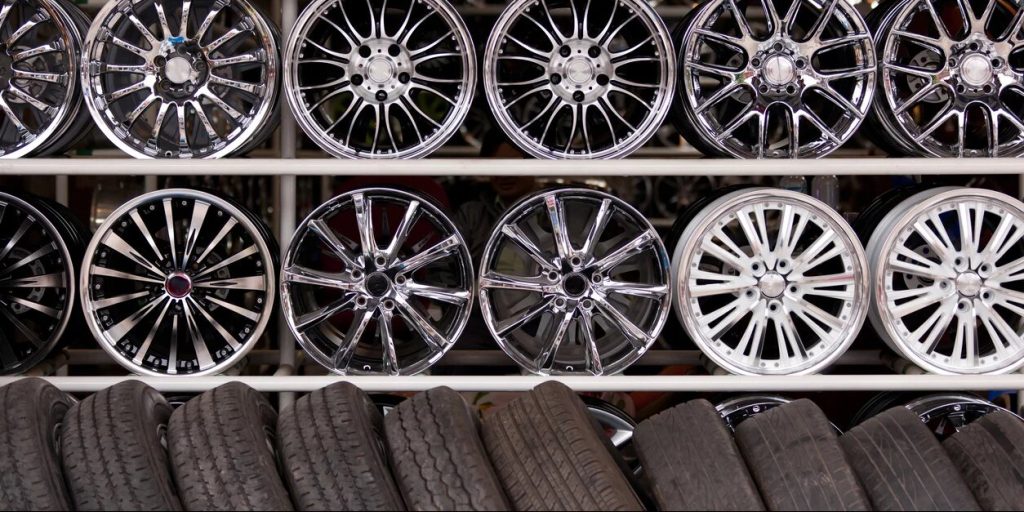
Keep a load rating in mind
Both tires and wheels have a load rating, so if your vehicle does hard work, it is better to own wheels that have a proper load rating for your needs. A larger number of bolt nuts and a wider bolt circle in the wheel increase the maximum load rating.
Where Do I Get Required Measurements?
All measurements regarding wheels should be specified by the seller or manufacturer. It they do not provide you with such information, consider finding another place to purchase wheels.
You should pay particular attention to these measurements when choosing alloy wheels.
- Pitch Circle Diameter or PCD. This measurement is very important to know, in order to be sure that the wheels would fit onto your vehicle.
- Width and diameter. If your new wheels would have a different size than the old ones, new tires would be required.
- Offset of the wheel. If the wheel has a positive or negative offset, you have to consult a specialist, to learn if you can install the wheels using wheel spacers.
Measurement regarding your vehicle could be found either on the internet or in the car service. To find the details about your vehicle’s measurements like PCD, and load rating, search the model of your vehicle and the year of manufacture.
You could probably try and measure everything yourself, but car services always have the proper tools to get the correct information. Also, sometimes such information can be found in your vehicle’s manual.
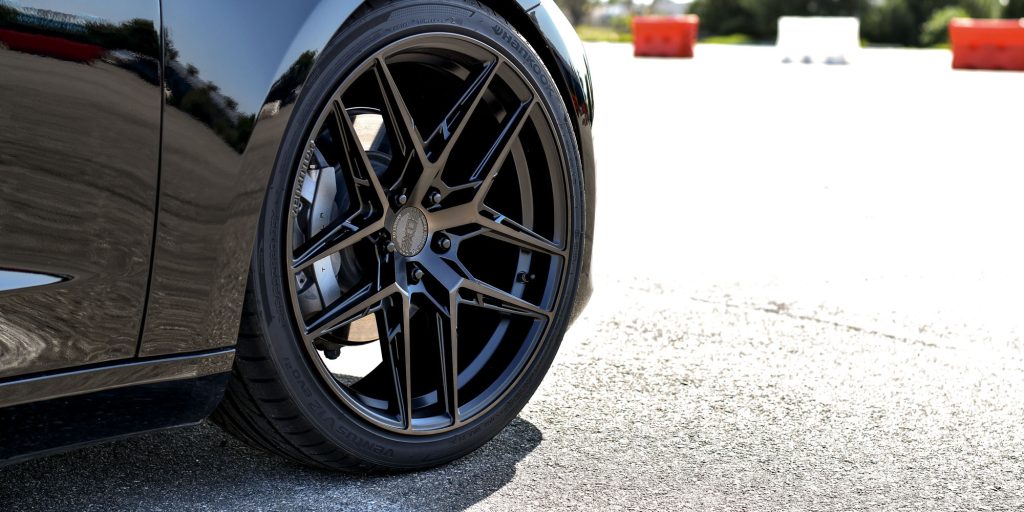
Cast, Flow Formed or Forged, What Do I Choose?
There are three types of alloy wheels that differ in terms of durability and price.
Forged wheels are the most expensive, and there is no real need to buy them if you drive your car around the city. They are the most durable, high-quality wheels. They do not crack, so they are good for off-road activity, harsh conditions, and high load ratings.
Cast and Flow Formed wheels are nearly the same, with Flow Formed being more durable in the central part of the wheel. These types of wheels are vulnerable to cracks on harsh roads. This is why it is important to drive around the holes and bumps.
Simply speaking, when choosing alloy wheels, it is best to decide between cast and alloy wheels if your vehicle is not exposed to harsh conditions. If you are a racer, or your vehicle has to drive on unkempt roads with a lot of rocks, bumps, and holes, consider purchasing forged wheels. But be prepared that forged wheels are the most expensive type of all.
